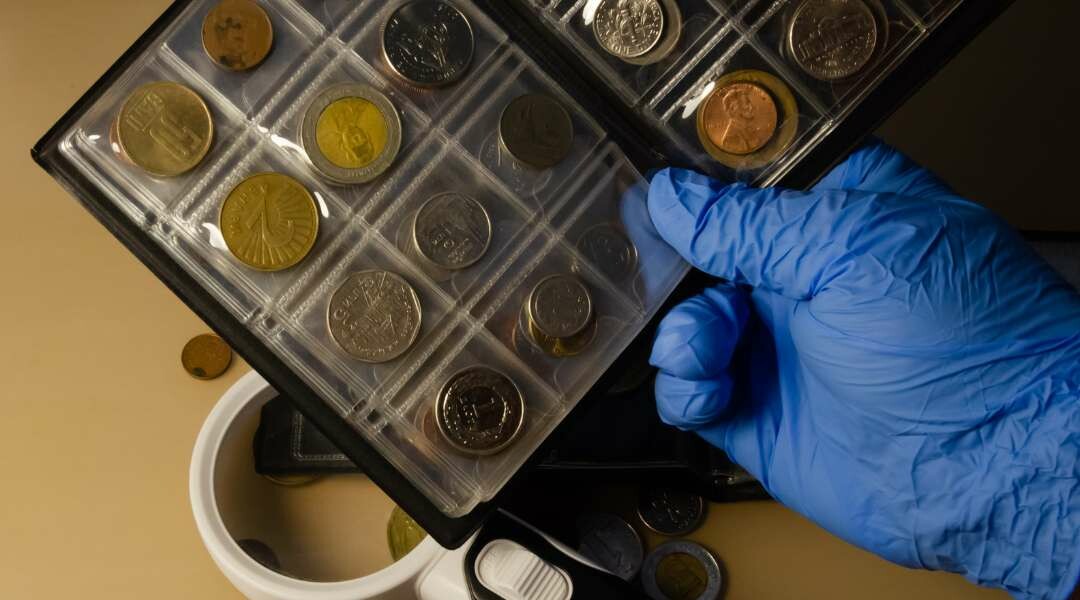For coin collectors in St. Petersburg and beyond, the joy of this hobby often comes from discovering rare gems and ensuring they’re genuine. The world of counterfeit coins can be intimidating at first, but a little knowledge can go a long way—especially if you’re eyeing that next big auction or planning to sell some coins. Let’s explore how you can confidently verify the authenticity of your treasured coin collection.
Inspecting for Details and Defects
Your coin collecting journey will be much smoother with the right tools. One indispensable tool is a high-quality microscope. Stereo microscopes are a popular choice among collectors for their dual eyepieces, which provide a sense of depth crucial for inspecting three-dimensional objects like coins.
Don’t overlook digital USB microscopes, though. These have special features, like software for measuring and even detecting fakes. The Dino-Lite AF4115ZTW, for instance, offers 10–50x magnification and is highly recommended by coin enthusiasts for its wider field of view.
Understand Basic Authentication Processes
It’s essential to diversify your skill set in coin authentication. One way to do this is by learning coin grading, a method that assesses a coin’s condition and its potential worth on a scale of Poor-1 to Mint State-70. The American Numismatic Association offers a correspondence course called “Grading U.S. Coins” that’s open to both members and non-members keen on boosting their grading skills.
Gather Information About Your Coins
Being familiar with your coin’s history can greatly help in authenticating it. This adds another layer of fascination to your hobby as you link each coin to its historical era. Experienced collectors often advise “buying the book before buying the coin.” Use available resources to understand grading and how wear and tear can affect a coin’s value, particularly if it’s from the U.S., which employs a 70-point grading scale.
Verify Professional Grading Designations
How can you be sure of a coin’s grade? Trusted organizations like the Numismatic Guaranty Corporation (NGC) provide global grading services. You can use their comprehensive online databases to cross-reference grades using the unique ID numbers found on the graded coin holders. Beware of less reputable companies that could inflate grades; stick to trusted names like NGC to safeguard your interests.
Compare to Expert Reference Materials
Start by assigning a quality number to your coin based on the Sheldon scale, which ranges from 1 to 70. This will help you understand any differences in quality between coins. Also, examine your coins for wear marks, scratches, or stains, as these can impact their value. And remember, it’s crucial to preserve the original surfaces—cleaning your coins with harsh chemicals is a no-no in the coin world.
Have Rare Coins Professionally Valued and Appraised
For accurate valuations of your rare coins, consult an expert rather than relying on YouTube or TikTok videos. Experts use established criteria for assessing your collection, ensuring accurate and fair market values. Although you might find similar coins selling for high prices online, many factors such as quality, rarity, and demand affect your coin’s actual market price.
Participate in Coin Auctions and Fairs
To elevate your coin collecting experience, consider joining rare coin auctions or attending fairs. These events allow you to interact with fellow collectors, learn more about coins, and even bid on some unique finds. Stick to a budget, and remember, buying is not mandatory. Use these events as learning experiences to further your understanding and confidence in authenticating coins.
In summary, take the time to carefully examine your coins, keep educating yourself, and consult trusted resources. For those looking to sell, Blackwell Auctions is always ready to help you get the best market prices for your authenticated collection of gold, silver, or rare coins.




